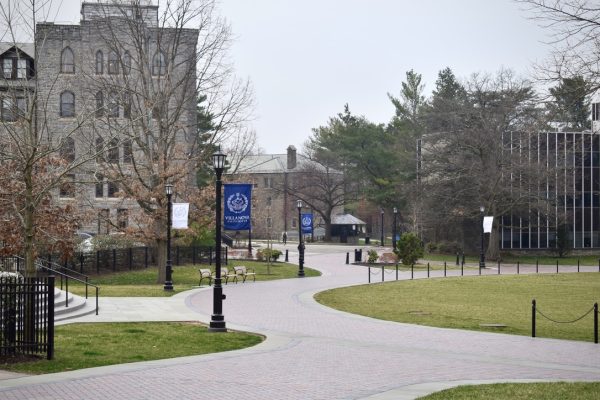Editorial
December 11, 2014
Recently, a story broke that a University of Virginia student, identified as Jackie, was gang raped by several fraternity brothers.
What ensued was national outrage that the University failed to take accountability for the rape or fully investigate the allegations.
People were astonished, shocked and disgusted that the UVA community perpetuated such a violent rape culture by refusing to speak out.
But then came a series of questions and doubts.
Rolling Stone Magazine’s story that announced the gruesome rape at UVA’s Phi Psi house in extreme detail has recently been called into question after the magazine acknowledged discrepancies and fabrications in Jackie’s account.
Rolling Stone released the following post-publication statement:
”In the face of new information, there now appear to be discrepancies in Jackie’s account, and we have come to the conclusion that our trust in her was misplaced.We were trying to be sensitive to the unfair shame and humiliation many women feel after a sexual assault and now regret the decision to not contact the alleged assaulters to get their account.”
The convulsion surrounding this case reveals the difficulties in pinpointing the veracities and truths behind any rape allegation.
It seems simple: report an incident of sexual abuse, investigate the claim and punish the perpetrator. However, now issues of protecting both the accuser and the accused have entered the picture.
It is possible that 5-7 men and the reputation of an entire university has been ruined due to a false or fabricated allegation.
It is also possible that a rape victim is being falsely discredited and unsupported by her academic institution and several major news publications.
So how should one proceed?
First and foremost, campuses need to ensure that their students feel comfortable reporting incidents and getting help from fellow students. Breaking the silence is the most important part of ensuring that the truth is heard.
While it seems absurd that Rolling Stone wrote this whole story and then recalled it, the fact that it was written at all proves that rape on college campuses is beginning to evolve into a nationally recognized issue.
However, in the same right, the debunked story may also discourage other women to come forward about their own incidents of sexual assault.
Furthermore, the media needs to tread carefully both in shedding light on these situations as well as investigating them fully.
Fabricated or not, this story is a teaching moment for colleges around the country. Administrators and people in position of power need to examine their system to ensure that they are responding effectively to claims of sexual abuse.
It is unacceptable that deans and administrators allow rape to continue inside the halls of their institutions.
When all is said and done, everyone involved in this case has been under fire for one reason or another: Jackie is being criticized for making up the story, Rolling Stone Magazine looks bad for poor journalism and the reputation of those frat brothers and the University of Virginia still hangs in the balance.
The takeaway from this media disaster is to deal with allegations of rape seriously and delicately, in order to ensure that all parties are being accounted for. Ebola is not a laughing matter
Ebola is not a laughing matter.
In last week’s edition of The Villanovan, the opinion section featured an article entitled “Watch out, Ebola: ‘Tis the seasonal jolly-bug going around campus.”
I take issue not with the article, but with the headline that the editorial staff grafted onto it. The current Ebola epidemic has caused over 6,200 (documented) preventable deaths, ravaged economies and highlighted massive disparities in infrastructure and global health. Juxtaposing this catastrophe with a playful article displays insensitivity, ignorance and, perhaps most troubling, indifference.
Although Ebola has recently fallen out of favor with the American news media, it is critical that students understand that the fight against diseases like Ebola is not over. Without a serious investment in the staff, equipment and systems that enable global health equity, we risk new outbreaks, unprecedented in scope or severity, on local and global stages.
I believe we can do better. I believe that we can speak about these issues in an informed and compassionate manner that affirms our belief in health as a human right.
Students interested in learning more can follow updates through the BBC’s World Africa section. Those desiring to contribute to the fight should consider donating to Partners In Health, an internationally renowned non-profit that, with local partners in Liberia and Sierra Leone, is addressing urgent medical needs and building the sustainable systems that we need.







